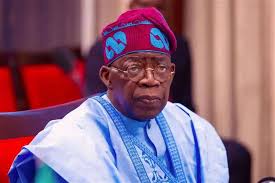The Renewed Hope Housing Programme, launched under the administration of President Bola Ahmed Tinubu, is shaping up to be one of the most ambitious housing and urban development initiatives in Nigeria’s history. The programme, which is the flagship housing project of the Federal Government, aims to address the country’s long-standing housing deficit, estimated at more than 17 million units.
The Honourable Minister of Housing and Urban Development, who has led the programme for nearly two years, said the project was designed to ensure every Nigerian – whether low-income, middle-income, or high-income – has a fair chance of owning a home. According to him, President Tinubu gave a clear directive under the Renewed Hope Agenda: close the housing gap, reset the trajectory of housing in Nigeria, and deliver real opportunities for affordable homeownership.
The plan is structured around three components. The first is Renewed Hope Cities, which are large-scale communities of at least 1,000 housing units each in key urban centres. These cities will not just provide houses but also come with schools, hospitals, green spaces, and business hubs. The second is Renewed Hope Estates, mid-sized projects of 250 homes in every state capital. These are targeted at middle-income Nigerians such as civil servants, teachers, health workers, artisans, and traders. The third is the Renewed Hope Social Housing Estates, which will provide 100 affordable homes in each of the country’s 774 local government areas. This part of the programme is aimed at the poorest Nigerians, including persons with disabilities and homeless families.
Officials said the programme already has housing projects under construction in 14 states and the Federal Capital Territory (FCT). The spread, which covers at least two states in each of the six geopolitical zones, is deliberate. It is intended to show that the housing programme is not restricted to major cities but will eventually reach all 36 states and 774 LGAs.
Unlike many previous housing efforts that depended largely on government budgets, the Renewed Hope Housing Programme is anchored on Public-Private Partnerships (PPPs) and blended financing. According to the Ministry, over ₦70 billion in private capital has already been mobilised, making the programme financially sustainable and scalable.
Another feature that sets this project apart is the digital housing portal launched by the Federal Ministry of Housing and Urban Development. Nigerians at home and abroad can now apply online through the portal without going through middlemen or political connections. Allocation, officials said, will be fair and technology-driven. The programme also includes flexible financing models such as single-digit interest mortgages, rent-to-own schemes with zero down payments, and repayment periods of up to 30 years through the Federal Mortgage Bank of Nigeria.
So far, the government has broken ground on more than 10,000 housing units in less than two years. By comparison, previous administrations managed only about 3,500 units in eight years.
The programme is also creating jobs and stimulating the economy. The Minister explained that housing is labour-intensive, with each unit creating around 25 direct and indirect jobs. With over 10,000 homes currently under construction, more than 250,000 jobs have been generated in less than two years. Workers such as masons, plumbers, carpenters, painters, engineers, truck drivers, and suppliers of building materials are benefitting. On project sites, artisans reportedly earn between ₦120,000 and ₦150,000 monthly, injecting income into local economies and reducing poverty.
In addition to jobs, the programme is boosting local industries by prioritising Nigerian-made building materials such as cement, roofing sheets, paints, tiles, and windows. It is also opening up new urban growth corridors. For example, the Renewed Hope City in Ibeju-Lekki, Lagos, is positioned near major infrastructure like the Dangote Refinery and Lekki Deep Sea Port, creating new business clusters and residential hubs.
Alongside the housing initiative, the Federal Government is rolling out the Nigeria Land Registration, Documentation, and Titling Programme (NLRDTP). This reform targets the country’s outdated land administration system. Currently, about 96 percent of land in Nigeria is untitled, limiting its use for economic purposes. The new initiative, supported by state governments and development partners such as the World Bank, aims to digitise land records and provide secure titles. Officials say the reform could unlock over $300 billion in dead capital, giving Nigerians the ability to use land as collateral for loans and reducing land disputes.
The housing programme has also attracted international support. Nigeria recently signed a partnership with Shelter Afrique Development Bank, a pan-African housing finance institution. The deal will finance 5,000 affordable housing units in selected pilot locations across the country. This is the first direct project financing between Shelter Afrique and Nigeria in more than a decade.
Industry experts note that while the Renewed Hope Housing Programme faces challenges such as rising construction costs and infrastructure gaps, its scale, financing model, and digital framework mark a significant departure from past efforts. If sustained, analysts say the initiative could become one of the most impactful social and economic programmes under President Tinubu’s administration.
